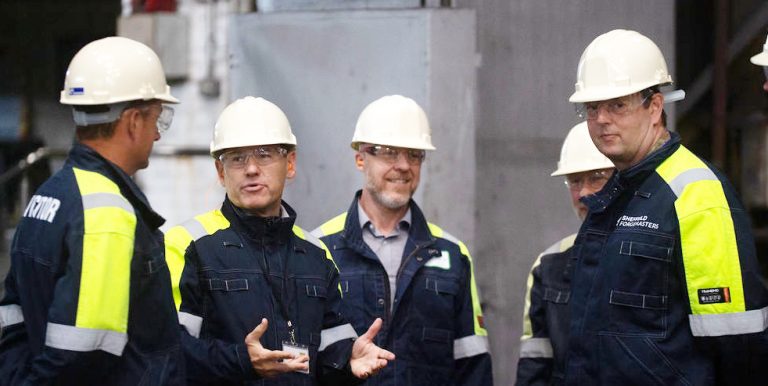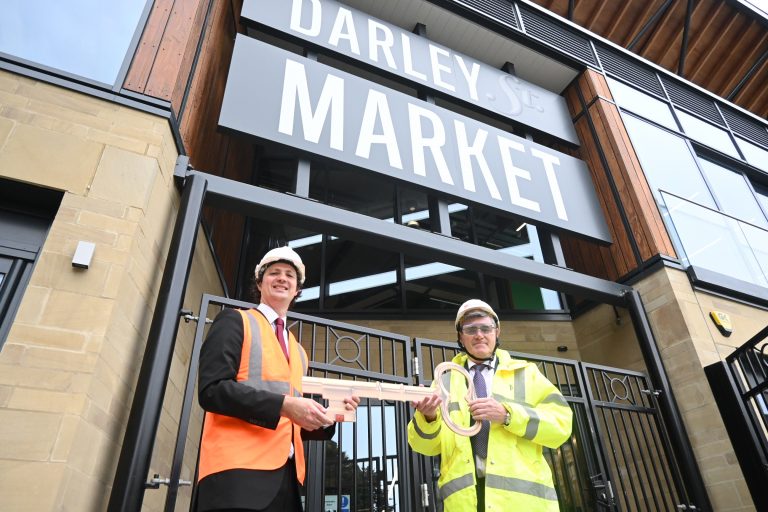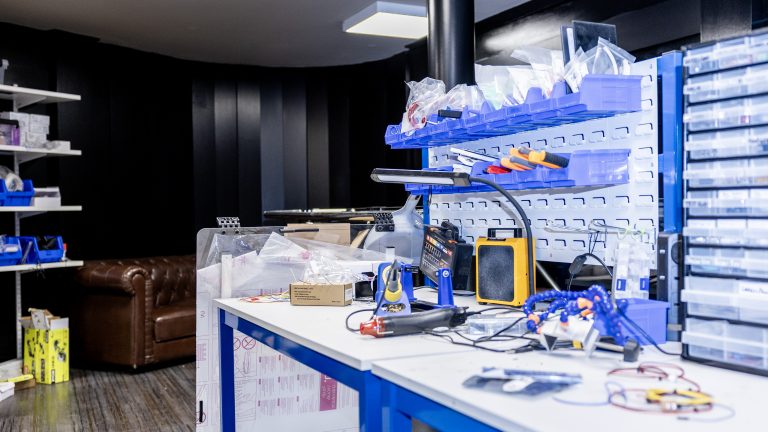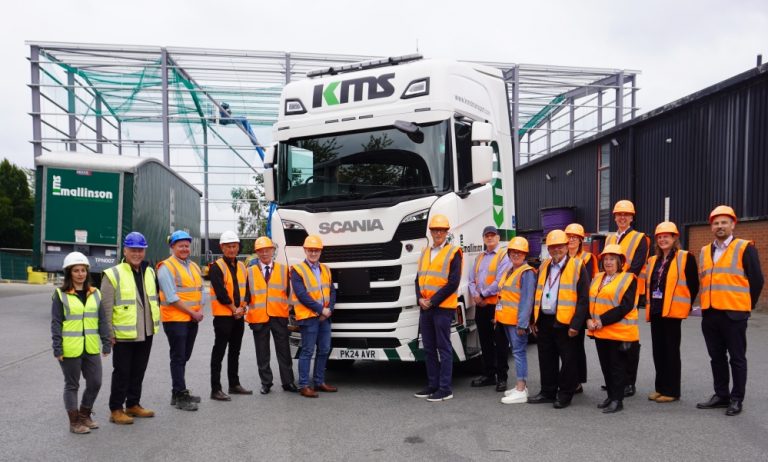Meta changes its stance on Facebook Marketplace data collection
The Competition and Markets Authority has accepted proposals to vary Meta’s commitments in the way it uses data held by its advertising customers.
Under the original commitments, Meta pledged to limit how it used advertising customers’ data in order to prevent it from getting an unfair advantage. Competitors of Facebook Marketplace that advertised on Meta platforms could ‘opt out’ of their data being used to improve Facebook Marketplace.
The varied commitments give Meta an additional way to implement the data controls set up in the original commitments. Meta currently plans to adopt this new approach meaning that all advertisers can retain the ability to place advertisements on Facebook Marketplace and be certain of their advertising data not being used to improve Facebook Marketplace, without having to opt in or out.
Having consulted advertisers and Facebook Marketplace users on the proposals, the CMA has concluded that the revisions go above and beyond the original commitments and would not leave any advertisers worse off. As a result, the CMA has accepted the proposed variation.
MP calls for probe into claims that FCA ignored whistleblower for two years
Beverley MP Graham Stuart and seven colleagues have written to Chancellor Rachel Reeves calling for an investigation into claims that for two years the Financial Conduct Authority ignored a whistleblower’s warnings of a potential fraud.
The allegation centre around a wealth management company called WealthTek, which was ordered to cease trading In April 2023, after the FCA uncovered “serious regulatory and operational issues.” It opened a criminal investigation a year later after a potential shortfall of £81.4 million in client money was discovered.
However, it is alleged that the FCA failed to act on a whistleblower’s claims of potential fraud at WealthTek for over two years. These suspected fraudulent acts have been a source of significant financial and emotional distress to people affected in Beverley and Holderness and across the UK who are urgently awaiting answers.
Mr Stuart said: “I am shocked and saddened to learn of the alleged fraudulent activities carried out by WealthTek. Thousands of people, including some of my constituents, trusted them to provide a service and have been left distraught by their reported actions. That’s why I’ve written to the Chancellor to urge her to commission an investigation into why action was not taken sooner by the FCA.
“I will continue to support anyone affected by this in Beverley and Holderness and do all I can to help them at this very difficult time.”
Army visits Forgemasters to assess capability for making gun barrels
Sheffield Forgemasters’ could start making artillery gun barrels in the UK after 20 years in the wake of a visit too Sheffield Forgemasters by the senior army official responsible for supplies including weapons and helicopters, .
Lt Gen Simon Hamilton has seen Forgemasters’ existing and potential future unique capabilities which could support the Land Industrial Strategy.
He said: “The visit provided real insight into a vital manufacturing facility that supports the Defence Nuclear Enterprise and a better understanding of manufacturing capabilities that could increase UK content resilience and prosperity in the Land Domain in the future.”
Sheffield Forgemasters has the only deep, vertical heat-treatment system in the UK, which is an essential capability for processing long gun barrels.
Gary Nutter, CEO at Sheffield Forgemasters, said: “We were honoured to host Lieutenant General Hamilton for a visit of our site, so that he could see at first hand how our many years of expertise and facilities that do not exist elsewhere in the UK, are key assets for UK gun barrels manufacture.
“There will be a certain amount of recommissioning to specific elements of the plant in order to restart gun barrels manufacture, but the opportunity to reinstate a sovereign capability for this type of production is a great accolade for the city.”
Sheffield Forgemasters has a long history of providing armaments to the UK military, including cannon, artillery and naval guns, primarily through its Vickers predecessor and supporting both world wars, but has not manufactured gun barrels for more than 20 years.
Lindum York unveils £8m racecourse redevelopment to worldwide audience
An £8m racecourse redevelopment that’s taken Elvington-based Lindum York nine months to deliver will be showcased on an international stage today.
It forms the backdrop for the 2024 Sky Bet Ebor Festival at York, and includes the Roberto Bar, refurbishment of the historic 1913 Bustardthorpe Stand, including a new ground floor extension, and a new 900 square metre Churchill Tyres Lawn and ETFE Canopy
Lindum commissioned York Handmade Bricks to make 70,000 bricks, named the Ebor Range, for use in the construction.
Lindum York MD James Nellist said: “We are really looking forward to seeing the Southern End fully in use for the first time. The Ebor festival is a highlight in York’s calendar, and I can’t think of a better event through which to showcase this major investment by the racecourse team.
“As a local contractor, being able to play a part in maintaining and improving York Racecourse is important to us. It contributes millions of pounds to the city’s economy every year, supporting thousands of jobs and helping to maintain the livelihoods of people in our community. During this latest project, 75 per cent of our contract spend was with subcontractors and suppliers within a few miles of site.
“Over the last eight years, we have developed a great working relationship with William Derby and his team and we’ve been able to support this project with practical advice and solutions from its inception, through to its design, specification and construction.
Businesses welcome economic boost from sporting event
Businesses have spoken of their pride at showcasing North Yorkshire through a major sporting event aiming to boost the county’s vital visitor economy.
The Long Course Weekend has chosen the county for the first time the internationally-recognised multi-sport event has been staged in England.
The event is based on the principles of the triathlon, but tailored to open up the three disciplines of swimming, cycling and running to as wide an audience as possible.
It is hoped that the sporting competition will bring in as much as £2m to North Yorkshire’s economy by attracting thousands of competitors and visitors.
Council leader Carl Les said: “We know how important the visitor economy is in North Yorkshire, especially in areas such as the Yorkshire Dales.
“The Long Course Weekend will give us the opportunity to showcase Masham and North Yorkshire to thousands of people who will be visiting, bringing a welcome economic boost for local businesses.”
Business owners in Masham say they believe the sporting event will be a major showcase for the area.
Richard Welford, owner of the family-run Beavers Butchers on Silver Street in the town, said: “It’s a real privilege for us to be hosting the Long Course Weekend, and it will bring so many people to the area. It is not just about the weekend, though, as we know people will come back. This has happened before when people have said they loved the area while visiting and decided to book another stay.
“The organisers have engaged with the local community and have held meetings in the Town Hall to answer any questions people may have. I am really looking forward to it, and I am sure we will be able to show Masham and North Yorkshire in the best light possible.”
The Long Course Weekend will be held in Masham from Friday, 6 September, to Sunday, 8 September.
The swim distances range from 1.2 miles to 2.4 miles, cycling routes will be from 56 miles to 112 miles and the run will start at five kilometres to a full marathon. There will also be a children’s running event to encourage all members of the family to get involved.
The event was established in Wales in 2010, and now has annual competitions taking place across the globe including in Holland, Belgium, Mallorca, Australia and New Zealand.
Mitsubishi commits to £250m development at Saltend
Mitsubishi Chemical Group UK has committed to invest £250m in a new production line at Saltend Chemicals Park, within one of the three Humber Freeport tax sites.
Preparatory works are paving the way for a new production line, doubling the company’s capacity at the site east of Hull.
The investment in a second production line will create dozens of new jobs while also safeguarding the existing 130 roles at the Mitsubishi Chemical Group facility on site. The new production line is expected to become operational in 2026.
Saltend Chemical Park’s status as part of Humber Freeport’s Hull East tax site has been a key factor in securing the investment, with plans for Mitsubishi Chemical Group to extend its lease with the chemical park’s owner and operator, px Group, until 2060.
Businesses investing within the Humber Freeport tax sites benefit from a series of advantages, ranging from business rate and stamp duty land tax relief, to National Insurance support designed to reduce employment costs.
The new production line will help to meet growing demand for SoarnoL, the brand name for a grade of Ethylene Vinyl Co-Polymer (EVOH) which is primarily used in food packaging to extend product shelf life.
Since opening in 2002, Mitsubishi Chemical Group’s Saltend facility has seen a significant increase in demand for SoarnoL, which has been driven by food manufacturers seeking packaging that can be recycled and has a lower environmental impact.
The innovative product preserves flavour and freshness through use in items such as the protective film on ready meals, squeezy sauce bottles, baby food packaging, meat packaging and much more.
The investment will further strengthen trade links between the Humber and the rest of the world, with 95 per cent of production from the Mitsubishi Chemical Group facility at Saltend exported.
Humber Freeport Chair Simon Bird said: “We are delighted that Mitsubishi Chemical Group has chosen to make this very significant new investment at Saltend on a site benefiting from being within the Humber Freeport footprint.
“The substantial advantages offered by freeport status were an important factor in securing this new inward investment.
“It supports Humber Freeport’s mission to attract significant investment and create new, highly-skilled jobs and aligns with two of our key areas of focus – advanced manufacturing and decarbonisation.
“The Humber is the UK’s global gateway, offering easy access to Europe and beyond. The region also has the space to grow, the people, the skills and the world-class companies already here to support investors – all of which make the Humber the perfect place to do business.
“Those advantages are substantially enhanced by freeport status, making the region an even more attractive location for large-scale investments delivering very significant and long-lasting economic benefits.”
Peter des Forges, MD of Mitsubishi Chemical Group UK, said: “Once the new line is operational, the majority of the increased production will service the needs of our customers in more than 40 countries who continue to explore ways they can reduce waste and meet environmental targets.”
New Darley Street Market building officially handed over
The new state-of-the-art Darley Street Market building has been officially handed over to Bradford Council after contractor Kier completed the build phase, paving the way for the fit-out stage to commence.
Set in a 4,000 m2 prime city centre location, Darley Street Market will feature three bustling trading floors that will welcome independent traders as well as creating a cultural space for live music, arts and entertainment.
The top floor is to be a food and drinks hall with bar area, a stage and large screens for events, as well as a terrace balcony overlooking the 1,000 m2 open air market square.
The middle floor will have fresh food stalls including butchers, bakers, fishmongers, greengrocers and delicatessens.
The ground floor is where the non-food stalls will be located, and there will also be cafes which open out on to the market square, which features a big screen and can hold around 500 people for events and concerts. The square also has a series of interlocking umbrellas, which can be used to create an undercover area for pop-up market stalls and events.
Below the market square is a large underground area for trader deliveries, additional storage and waste handling and recycling.
Councillor Alex Ross-Shaw, Bradford Council’s Executive Member for Regeneration, Planning and Transport, said: “I’d like to thank partners Kier Construction for their work on the construction of this new state-of-the-art market building, which will be enjoyed by people from across the district and beyond. We’re looking forward to progressing through the next stage of the project, which is working with traders on the fit out of their stalls.”
Dan Doherty, regional director of Kier Construction North & Scotland, said: “This is a stand-out development for Bradford city centre and brings urban sustainability and community development together in one building.
“I am incredibly proud of the work our teams have done to finish this fantastic building as well as the positive legacy we’ll leave behind as a result of our work within the local community. I look forward to seeing the market and local area flourish once it is completed. Thank you to everyone involved.”
Sheffield startup transforms nightclub into lab space
Unicorn Biotechnologies, a Sheffield startup, has moved its team of scientists and engineers from Sheffield Technology Parks to a newly refurbished city-centre space in a former nightclub.
Co-founded by Adam Glen and Jack Reid, Unicorn Bio is developing groundbreaking technology designed to automate cell culture and free up scientists’ time for valuable analysis and experimentation.
The startup began life in Adam’s attic after the founding duo met on an entrepreneur programme, hosted virtually during the pandemic. On realising the full potential of their ideas, Unicorn Bio moved into office space at Sheffield Technology Parks (STP) in 2021, which they soon transformed into a bespoke lab space.
With a dual focus on developing cell lines used in meat production, medicine, and numerous other applications, as well as innovating the unique technology to augment this cell culture, Unicorn Bio’s team grew to ten and they began looking for new premises early in 2024.
When considering the former nightclub located on Shoreham Street, Adam and Jack quickly saw an opportunity. The unique venue had existing features well-suited to their needs, such as high-quality air conditioning.
Crucially, the building offers ample space to innovate across both the scientific and engineering sides of the business, maintaining efficiency by keeping processes in-house. In the new spacious labs Unicorn’s scientists can undertake cell culture, experimentation and analysis whilst the dedicated workshop is a hub of engineering, housing 3D printers, tools and prototypes.
Reflecting on the suitability of the new premises, Adam said: “There’s no reason not to create a lab space here. People tend to stay in their lane in the UK, but who says we can’t turn a bar into a biotech lab? Companies like Hewlett Packard and Apple started in garages. This is a fantastic space that meets our needs, why wouldn’t we move here?”
This attitude underpins the company’s success to date, having secured significant investment as well as five allocations of grant funding from Innovate UK, which has supported collaborations with partners in Canada, Oxford, and Cambridge. Adam said: “We are a small and independent startup and the advantage this gives us is speed and agility.
“We began in an attic with a lizard incubator and pond cleaning gloves. In three years, we’ve moved from there to the Tech Parks – where we built a lab with support from Tom and his team, because it was quicker and more cost effective than using offsite labspace – and now, we’re in our new home.
“I want more people to start biotech businesses here in Sheffield and I hope our example shows that it can be done. There are many talented individuals in this city, and if I can do it, so can they.”
Tom Wolfenden, Sheffield Technology Parks CEO, added: “Jack and Adam’s entrepreneurial approach is really impressive; they take risks, aren’t afraid of doing things differently and see opportunities where others may not.
“Unicorn leaves a lasting legacy at Sheffield Technology Parks, we worked closely with the team to create our first bespoke lab space and we’ll soon complete our fifth. It’s encouraging that no sooner had Unicorn moved out, another two lab users moved in. We have an exciting science economy emerging in Sheffield and Unicorn are real trailblazers within it.”
Grant paves way for Goldthorpe company’s expansion
A Barnsley haulage and logistics company is moving ahead with ambitious expansion plans thanks to the support of a grant from the Goldthorpe Towns Fund.
Mallinson Properties for KMS Transport has secured the £1.2 million investment from the Goldthorpe Towns Commercial Investment Fund (GTCIF).
The GTCIF is part of a programme of projects funded by the government as part of a £23.1 million investment in Goldthorpe, Thurnscoe and Bolton upon Dearne.
The Goldthorpe Town Deal Board is overseeing the distribution of the Towns Fund investment.
Its aims include supporting businesses in the Dearne to create more well-paid jobs and attract new investment.
Mallinson Properties is using the grant contribution to build two extensions to its existing premises.
The project will increase the company’s pallet storage capacity and create new job opportunities. It will also create social value by supporting local supply chains and environmental sustainability.
Stephen Mallinson, managing director of Mallinson Properties, said: “We are delighted with this grant from the Goldthorpe Towns Commercial Investment Fund. It is enabling us to expand our business and meet the growing demand for our products and services.
“This project will not only benefit our company, but also the local economy and community.
“We are proud to be part of the Dearne Valley area and eager to enhance its potential and ambition.”
Matthew Stephens, chair of the Goldthorpe Town Deal Board, said: “I am delighted that we have been able to support Mallinson Properties on this project.
“We are focused on supporting the local economy and social value, so I am also pleased that they are using the local supply chain to deliver the project.
“I hope this is a catalyst for their business and facilitates the growth we need.”
Councillor Robin Franklin, Cabinet spokesperson for Regeneration and Culture, said: “We are pleased that Enterprising Barnsley, the council’s award-winning business support team, has been able to support Mallinson Properties to secure this funding.
“They are a long-standing Barnsley company, and this expansion shows their ambition to continue growing their business.
“We want to help businesses and developers overcome viability gaps to support the delivery of new projects. This will ultimately lead to the creation of new and additional employment opportunities.
“I’m sure this project will encourage interest from others in similar schemes should they become available in the future.
“We remain committed to helping Barnsley’s economy grow. This will provide new opportunities for residents and may also raise interest outside the area in living and working in Barnsley, the place of possibilities.”
Drax rail day boosts Hospice funds by £30,000
A rail charter event to mark the 50th anniversary of Drax Power Station in Selby has raised more than £30,000 for Martin House, a charity that provides hospice care for children and young people with life-limiting illnesses across West, North and East Yorkshire.
Three train services for passengers ran around the Drax Power Station Loop, a route normally restricted to freight trains moving biomass fuel.
Passengers were given the opportunity to ride onboard the special service, with each train using a different route around the power station and all profits from the event donated to Martin House Children’s Hospice.
Mark Gibbens, Head of Logistics at Drax said: “We are proud to partner with all of the main freight operators and the Branch Line Society for this historic charter rail event, to mark the Golden Anniversary of Drax Power Station.
“The weekend’s tours raised much needed funds for Martin House Children’s Hospice, a charity that is close to our hearts at Drax. Every year Martin House cares for more than 440 children and their families, as well as around 150 bereaved families, and events such as this allow them to continue their vital work in local communities.”
Michelle Ford, Regional Fundraising Team Manager at Martin House Children’s Hospice said: “We are incredibly grateful for the ongoing support f these organisations, which helps us to make a difference to the lives of so many children, young people and their families when they need us most. A huge thank you to everyone who has made this brilliant event possible, it means so much to all of us.”
The rail day was made possible through collaboration involving DB Cargo, GB Railfreight, Freightliner Heavy Haul, and the Branch Line Society.












